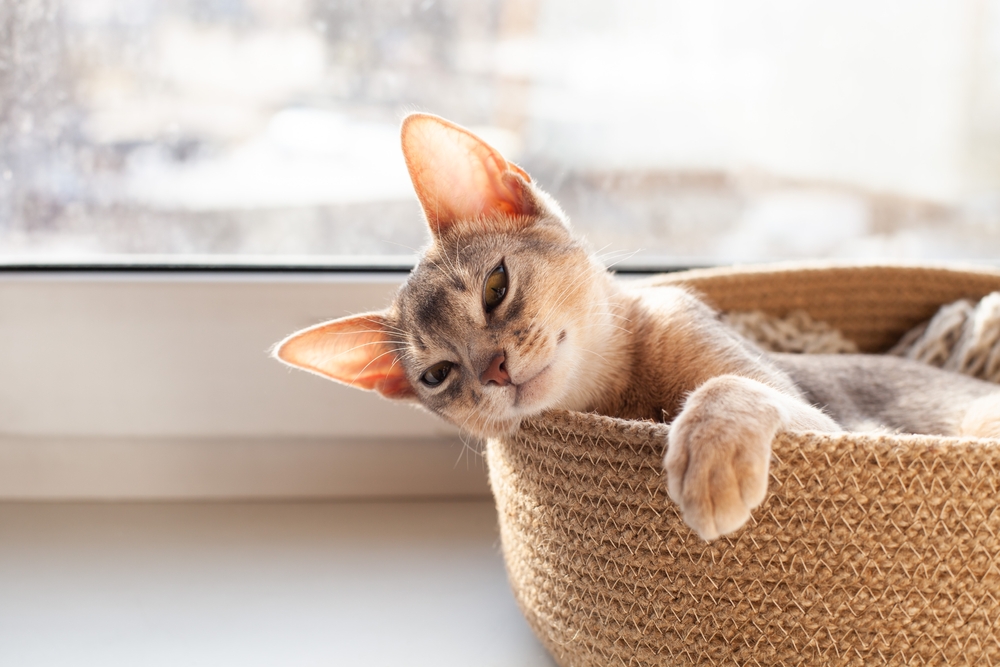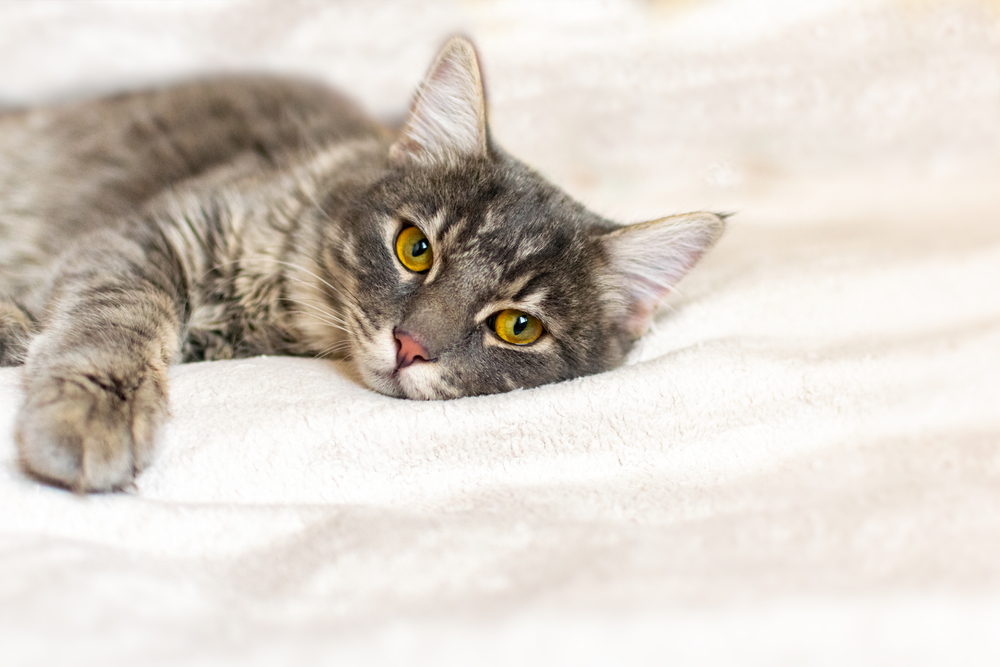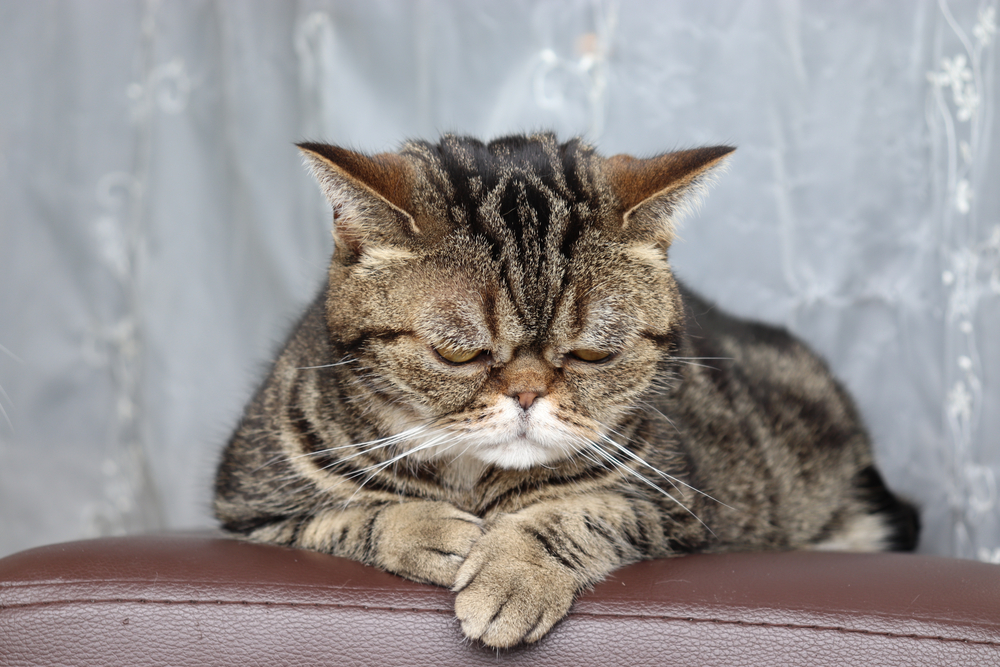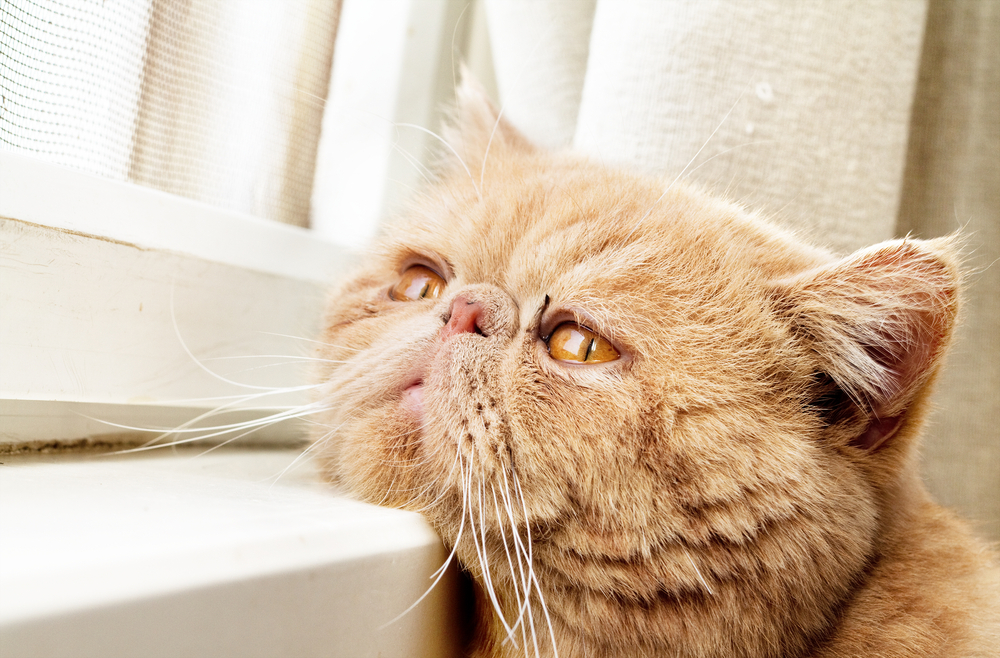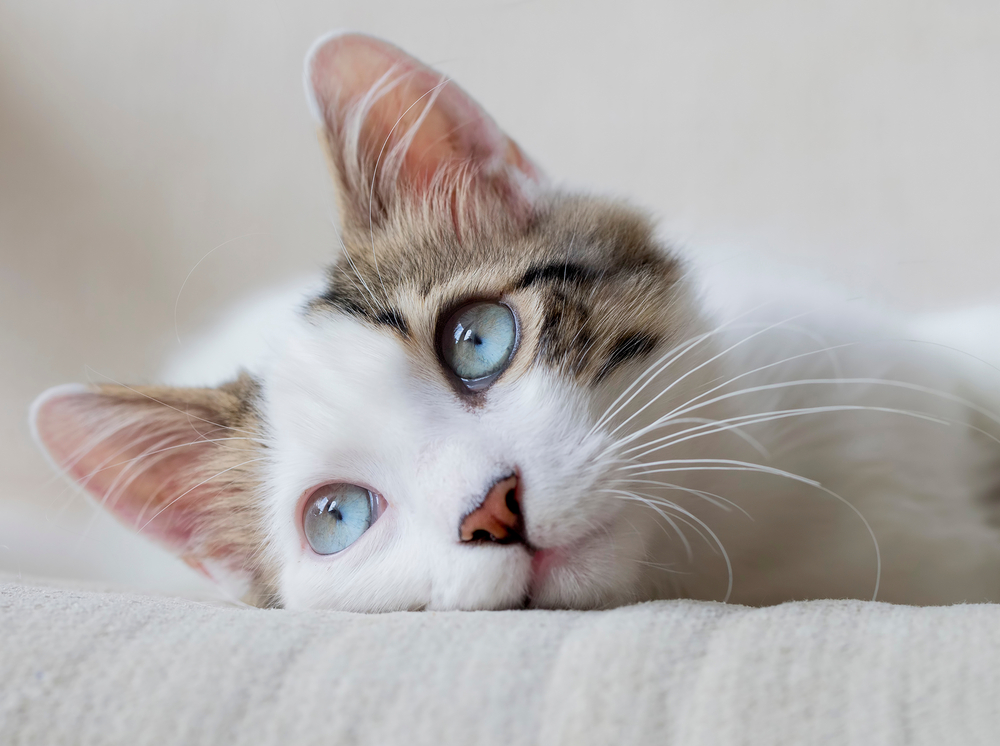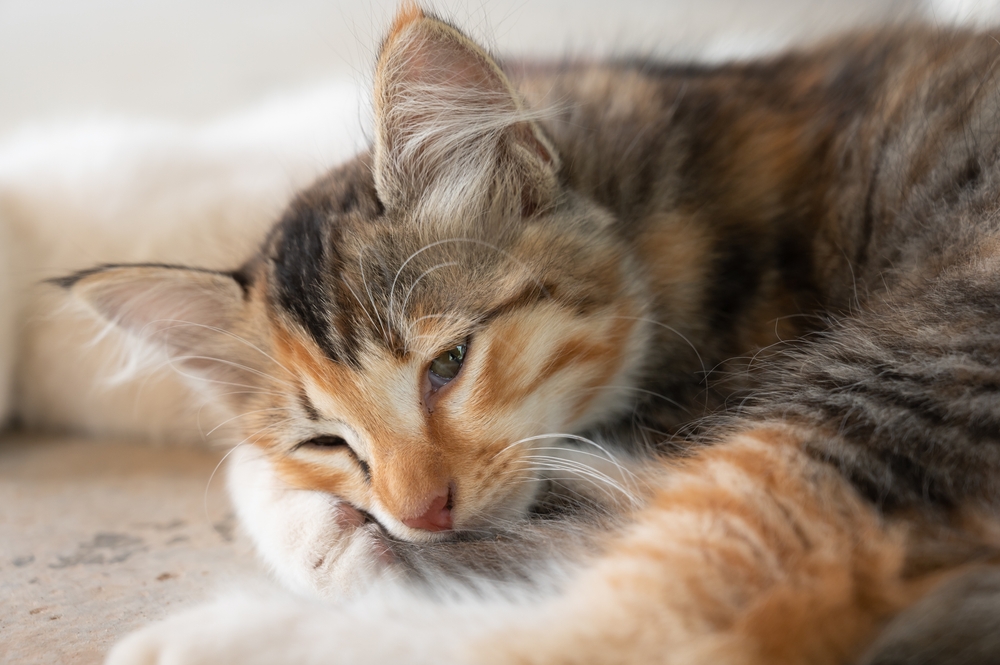📖 Table of Content:
If you’re reading this, you’re probably a real cat aficionado who wants to bless their life with an additional kitty. You came to the idea of adopting a new furbaby, but the thing is your first furry child doesn’t seem to approve. Is it actually possible for felines to develop cat depression after a new kitten is introduced?
Right now, you feel that’s exactly the case. Your first pride and joy isn’t acting herself and you’re not sure what’s going on.
At first, you assumed she was a little under the weather, but the more you think about it, the more you realize that there’s only one possible solution for this unusual behavior. There’s a trigger: your new kitten that’s been casually roaming around your home.
All in all, your older cat isn’t a huge fan of this new addition to your family and she doesn’t mind letting you know as much. But now, you’re getting worried about her since she’s showing actual signs of depression.
This wasn’t a part of the plan, so you’re really at a loss. How can you help your older cat? Is there something you can do to show her you’re not about to forsake or replace her? But first…
What causes cat depression after getting a new kitten?
Even though you’re a cat parent and you know that cats are creatures of habit who hate changes in routine, you completely overlooked the fact that something like this could happen. You simply wanted to make another kitten’s life better.
But now that you see your older cat suffering from depression, you blame yourself for everything she’s going through. Could it be that you did something that caused this behavior?
First thing first, take a deep breath and realize you couldn’t have known that your older cat wouldn’t be willing to accept a new addition to the family. Every feline is unique and we can’t always know how they will react to something.
One of the main reasons cats develop depression after getting a new kitten is the change in routine. Move their water bowl one foot away from its previous position and I’m sure they’ll protest by not drinking from it.
Felines love to have a schedule that doesn’t change and a plan of life that always remains the same. That’s what makes them happy. So, when you brought a new kitten into their territory, a lot of things changed.
For one, your older cat no longer knows what to expect. This instantly puts her in a state of caution. Another issue is that your first furry friend feels like she now has competition. In her world, this feeling can trigger some survival instincts: Mark your territory! Hunt! Avoid predators!
Finally, the fact that you decided to bring a new kitten into your home makes your cat jealous. I imagine her flow of thoughts sounds something like this.
“Didn’t I love you enough, hooman?! After all these years of sharing a bed and eating from the same plate, you bring me this random cat?”
Signs of depression in cats after a new kitten
You now know what made your cat feel depressed. But you need that final proof just to be sure that your poor furball is actually suffering from this condition. What are the signs of depression in cats?
1. Appetite changes
Has your older cat been acting weird when it comes to food? Maybe she no longer cares about her favorite treats and doesn’t seem to pay any attention to you as you’re filling her food bowl. Come to think of it, your once food connoisseur hasn’t been eating at all lately.
On the contrary, she may also start eating everything and anything as if she’s trying to drown her sorrows in food.
Anyways, you’ll need to pay attention to these changes in appetite. If you notice that your cat is avoiding food and acting as if it’s her biggest enemy, make sure to visit a vet for advice. You don’t want your furbaby to end up underweight (or overweight for that matter).
2. Urinating outside the litter box
Your older cat knows how to use the litter box, that’s a fact. But all of a sudden, she’s now urinating outside of it. Once you trace it back, you’ve discovered this new behavior started when you brought the new kitten home.
Well, this could also be a sign of depression in cats.
Your feline has this instinctual need to mark her territory, so that’s exactly what she’s doing. By urinating outside the litter box, she’s spreading her pheromones around the house, making sure the new kitty knows who’s boss.
3. Excessive scratching and grooming
Scratching and grooming are considered normal cat behavior. But once your feline crosses the line and becomes unable to control these types of behavior, that’s when you know something’s not okay.
But how can you be sure that your kitty is excessively scratching or grooming herself?
Well, pay close attention to her actions. How often do you catch her scratching your furniture, carpets, or walls? Does it happen a lot throughout the day?
When it comes to overgrooming herself, the best way to spot this is to examine her body. Are there any bald spots on her fur? Is she passing hairballs a couple of times a day?
These are some of the first signs of excessive grooming that you should spot and react accordingly.
4. Changes in body language
Take a look at your cat. Do her eyes look wider than usual? Does she hold her ears back and tuck her tail? Is her hair standing on end?
These are some of the first body language changes that happen in depressed cats. If you notice them, just know that your cat is tense and not in the best mood.
5. Acting clingy or avoidant
Your indoor kitty depends on you. She’s used to the life where you bring her food, water, and toys to play with. She enjoys living in a world where she treats you as her servant.
But if your cat gets depressed after a new kitten, there are two things she’ll do. On the one hand, she’ll follow you everywhere you go, making sure to remind you she was there first. This clingy behavior happens as your feline tries to re-establish her dominance in your home.
On the other, your older cat may decide to avoid you completely since you abandoned her trust by bringing a new kitten into her territory. In that case, she’ll hide away from you in all the secluded spots you can’t reach.
6. Vocal changes
The rules are simple. If your cat is usually loud and vocal, she’ll become quiet. If she’s the silent and reserved type, she’ll become noisy.
So, when you’re trying to figure out if your cat’s depressed after a new kitten, pay attention to her voice. If she used to be quiet and calm but now she’s hissing and yowling all the time, there’s your sign.
Or maybe she used to be the type who couldn’t stop meowing but now, you don’t hear a peep from her. It’s as if she’s intentionally giving you the silent treatment because you brought an intruder into your home.
7. Changes in sleeping patterns
Bringing a new kitten home can be stressful for your first kitty, to the point where it can affect her sleeping schedule. Garfield helped us realize how much cats love to sleep and eat. But, there’s always the line that shouldn’t be crossed since it signifies that something’s not okay.
When your cat sleeps more than usual and is hardly awake during the day, know that something’s off. This could be another sign of depression in cats, but you still need to be careful.
If you notice that your cat has also been weak and lethargic, then you should first take her to the vet to rule out any potential health issues.
8. Aggression
Is your cat acting aggressively all of a sudden? Did it all start the moment you brought a new kitten into the home? Well, you now know what triggered this behavior.
If your older cat has depression after a new kitten, she might’ve started showing signs of aggressive behavior. Hissing, yowling, growling, and biting are some of the first things you’ll notice.
She feels attacked and wants to protect herself. And right now, this feels like the best way to do so.
How can you help your cat get used to a new kitten?
Once you realize your cat has developed depression since the new kitten came on the scene, you have to start all over again. Here are some of the things you can do:
Keep your two cats in separate rooms: Don’t introduce the two kitties right away but rather give your older cat some time and space to adjust. The best way to do so is to prepare a room for the new kitten where she’ll have everything she needs. That way, the two felines won’t have to share the same space right away.
Create a calming environment for your older cat: You can achieve this by getting your older cat a pheromone diffuser or even some toys with catnip. That way, she’ll feel more relaxed and it won’t negatively affect the new kitten.
Once it feels safe, let them spend time together: At first, you can bring your kitten’s carrier and let the older cat sniff it. That way, she can get used to the new scent. Take all the necessary baby steps before you allow the two cats to spend some time together. Once they’re both relaxed in each other’s company, you’re good to go.
